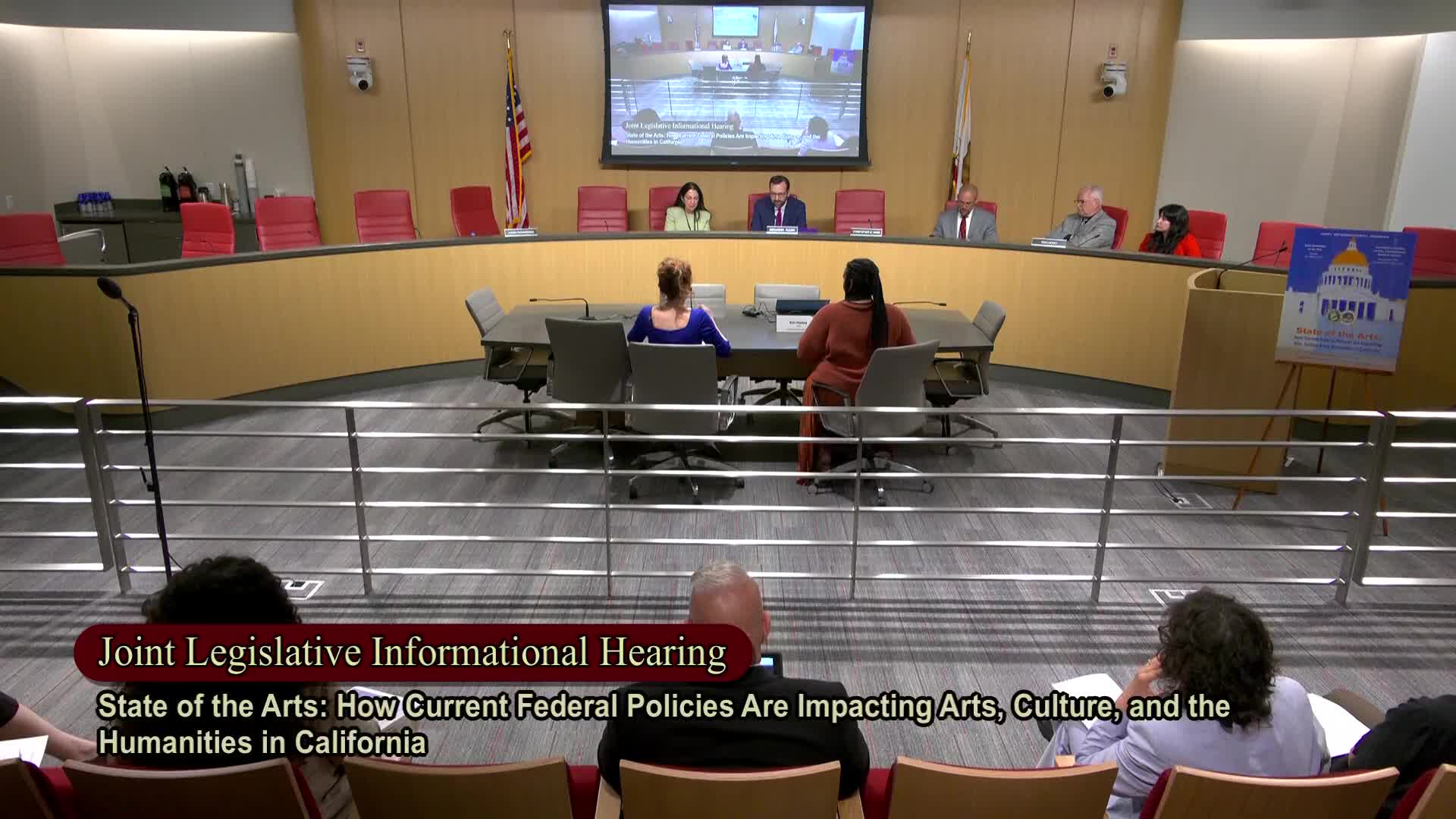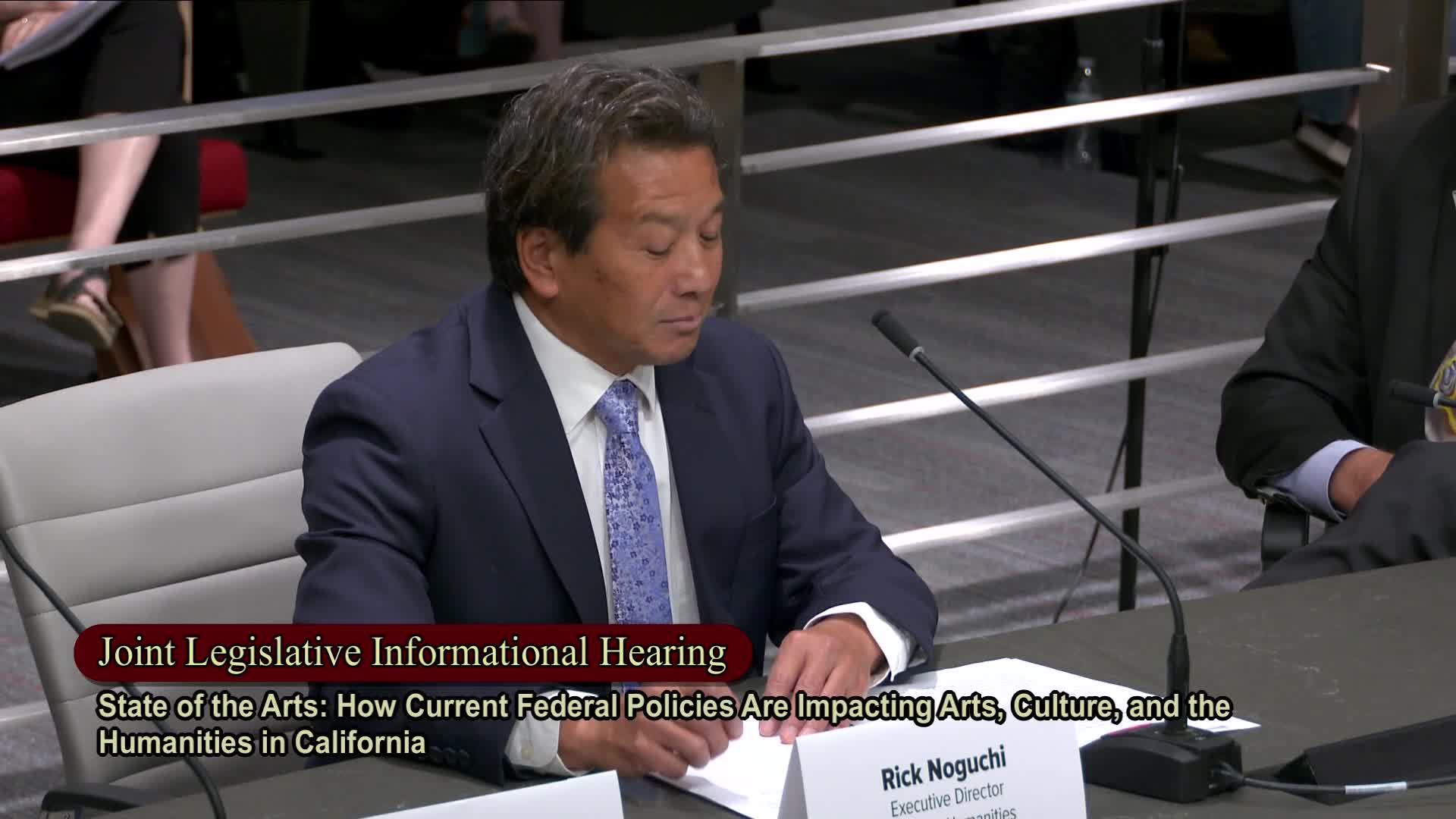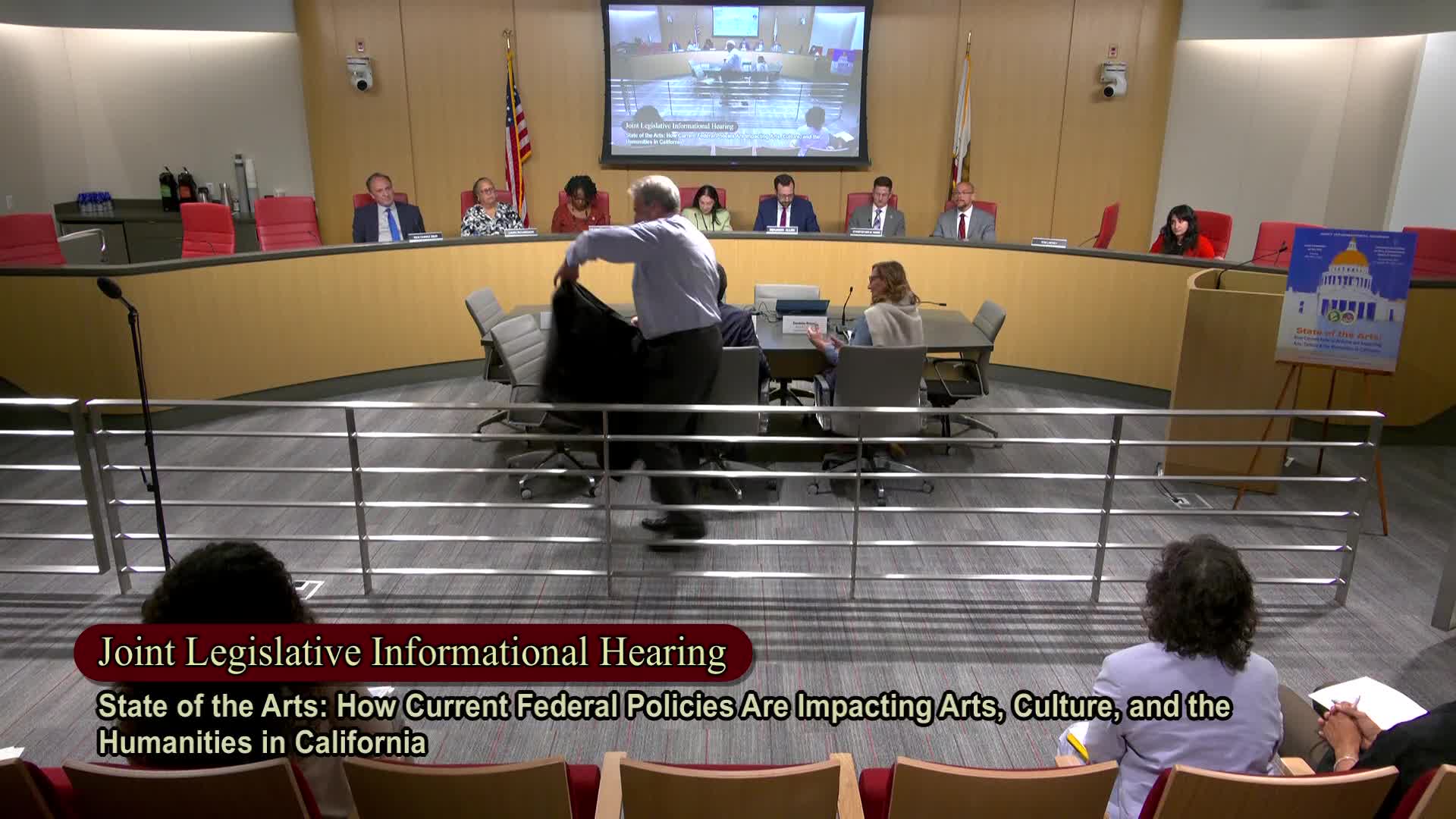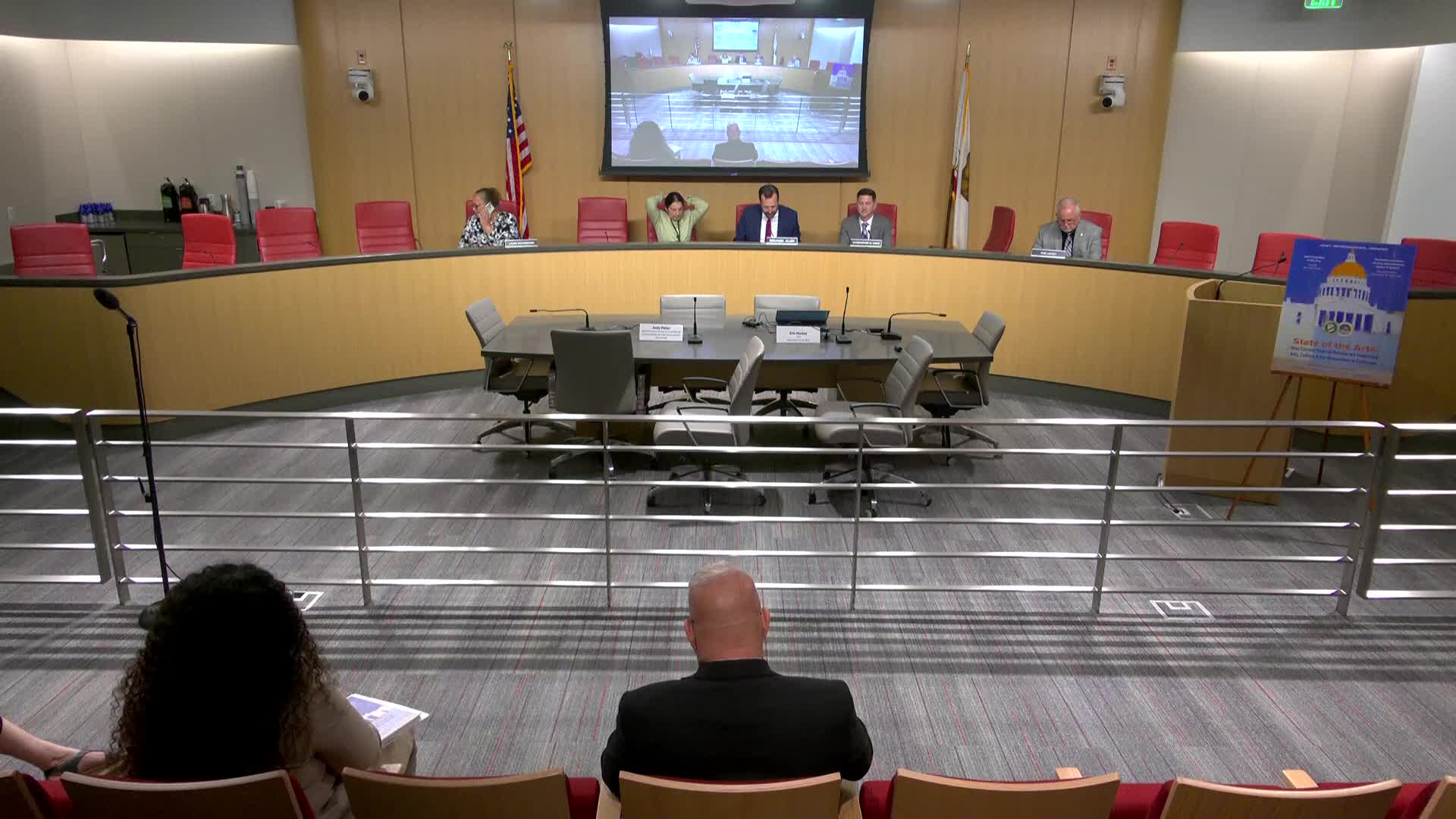Article not found
This article is no longer available. But don't worry—we've gathered other articles that discuss the same topic.

SAG‑AFTRA and filmmakers warn runaway production and tax and grant changes threaten California jobs

California museums and libraries warn of lost grants as IMLS, NEA and state programs face cuts

California Humanities says NEH termination halted nearly $1 million in awards, asks state for emergency support

